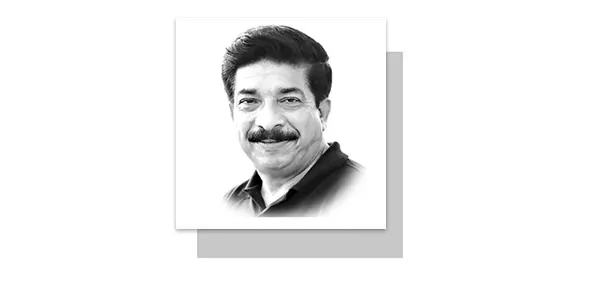INDIA has long pursued an assertive stance, intruding into the domestic affairs of its neighbouring countries. Whether it’s Sri Lanka, the Maldives, Bangladesh, Nepal, or Bhutan, India’s hand in meddling is unmistakable, driven by a desire to cement its sway in the region. Yet, this tendency to interfere doesn’t stop at its immediate vicinity. Far from the Indian subcontinent, we see Mongolia – an isolated, landlocked country squeezed between Russia and China – emerge as the latest theatre for India’s ambitions. Here, India seems bent on chipping away at the strong ties Mongolia shares with Russia and China, countries with whom it has historically enjoyed warm relations. Recent actions by India regarding Mongolia’s religious affairs have caused significant concern, particularly in the context of the 10th Bogd Jebtsundamba Khutuktu, the spiritual leader of the Gelug lineage of Tibetan Buddhism in Mongolia. The Bogd – an emblem of Mongolia’s very soul – traces its roots back nearly four centuries, intertwined with the legacy of the Mongol emperor, Kublai Khan. A lineage that embraced Tibetan Buddhism, spreading its influence far beyond Mongolia, even into the vast stretches of China and the conquered lands.
In the early 1900s, a Tibetan-born Bogd ruled Mongolia as a theocratic leader, revered not just as a ruler but as a god-king. When the last Bogd passed away in 2012, concerns spread throughout Mongolia that India, leveraging the influence of the Dalai Lama—exiled in India since 1959—might attempt to intervene in the selection of the next Bogd. The ninth Jebtsundamba Khutuktu had spent much of his life in exile, first in Tibet and later in India, with his identity kept secret by the Dalai Lama until 1990. It wasn’t until 2011, just a year before his death, that the ninth Bogd finally returned to Mongolia and was enthroned as the spiritual leader of Mongolian Buddhists. After his passing, the Dalai Lama declared that the reincarnation of the Jebtsundamba Khutuktu had been found, yet he remained silent on the specifics until March 8, 2023, when he revealed the new Jebtsundamba Khutuktu during a ceremony in Dharamsala: a young boy named “A. Altannar.” However, the situation took a surprising twist—there were not one but two identical twins named A. Altannar: Achildai Altannar and Agudai Altannar. The true identity of the 10th Jebtsundamba Khutuktu remains a closely guarded secret, known only to five individuals: the two boys, their mother (a college professor of mathematics), their father (a wealthy mining magnate), and, of course, the Dalai Lama himself.
Apparently, at the behest of India, the Dalai Lama’s has embraced an American passport holder boy as the 10th Jebtsundamba Khutuktu, marking an upsetting moment in the spiritual and political landscape of Tibetan Buddhism. For believers, reincarnation is a divine mystery, guided by higher powers. Yet, it’s hard to ignore the political undercurrents that often shape the lives of these spiritual figures, particularly in how they are educated and positioned within the broader geopolitical context. India’s involvement in this sacred process, especially in the identification and education of the 10th Jebtsundamba Khutuktu, represents a concerning overreach into Mongolia’s internal affairs. The Dalai Lama’s acknowledgment of the 10th reincarnation further denotes India’s growing interference in Mongolia’s religious sphere. This move suggests a strategic attempt by India to exert influence over Mongolia’s cultural and religious landscape. The Dalai Lama’s handling of matters pertaining to the selection and education of the 10th Jebtsundamba Khutuktu reflects this complex interplay of spirituality and politics.
It is still shrouded in mystery why he has selected an American-born boy from a rich family – despite intense resistance by boy’s parents, who initially refused to accept his verdict about their son. This manoeuvre, however, hasn’t been met with universal approval. In Mongolia, reactions have been mixed, with many taking to social media to express skepticism and confusion. It’s clear that not everyone is comfortable with the 14th Dalai Lama’s actions. The Dalai Lamas have long claimed that the Jebtsundamba Khutuktu is an incarnation of Taranatha, a 16th-century Tibetan master of the Jonang tradition. However, the Jonang School itself has not publicly endorsed this recognition, raising further questions about the legitimacy of the Dalai Lama’s decision. Historically, the Gelug tradition, to which the Dalai Lama belongs, has had a contentious relationship with the Jonang School, adding another layer of complexity to this situation. This development is being viewed as a potential threat to the stability and independence of Mongolia, raising alarms about the broader implications for regional sovereignty. When external powers, like India, intervene in such a delicate process, it not only undermines the sovereignty of the affected nation but also disrupts the sanctity of its religious practices. Concerns extend beyond the immediate political ramifications; they encompass the preservation of religious integrity.
The recent involvement of India in the selection process of the 10th Bogd Jebtsundamba Khutuktu raises serious questions about the intentions behind such actions. This move is not merely a matter of religious significance; it carries the potential to destabilize regional harmony. The selection of the 10th Bogd Jebtsundamba Khutuktu should remain an internal matter, free from external interference, to ensure that the process aligns with Mongolian customs and religious practices. In the interest of regional stability, it is imperative that all nations honour the internal affairs of their neighbours, safeguarding the delicate balance that underpins peace and cooperation in the region. Policymakers in New Delhi seem to believe that by steering the selection of the 10th Bogd in their favour, India could subtly expand its influence in Mongolia – a move that might serve to unsettle both China and Russia over the long haul. This strategic calculation reflects India’s broader geopolitical ambitions, where cultural and religious diplomacy intertwine with the pursuit of regional power dynamics.
—The writer is political analyst, based in Karachi.








